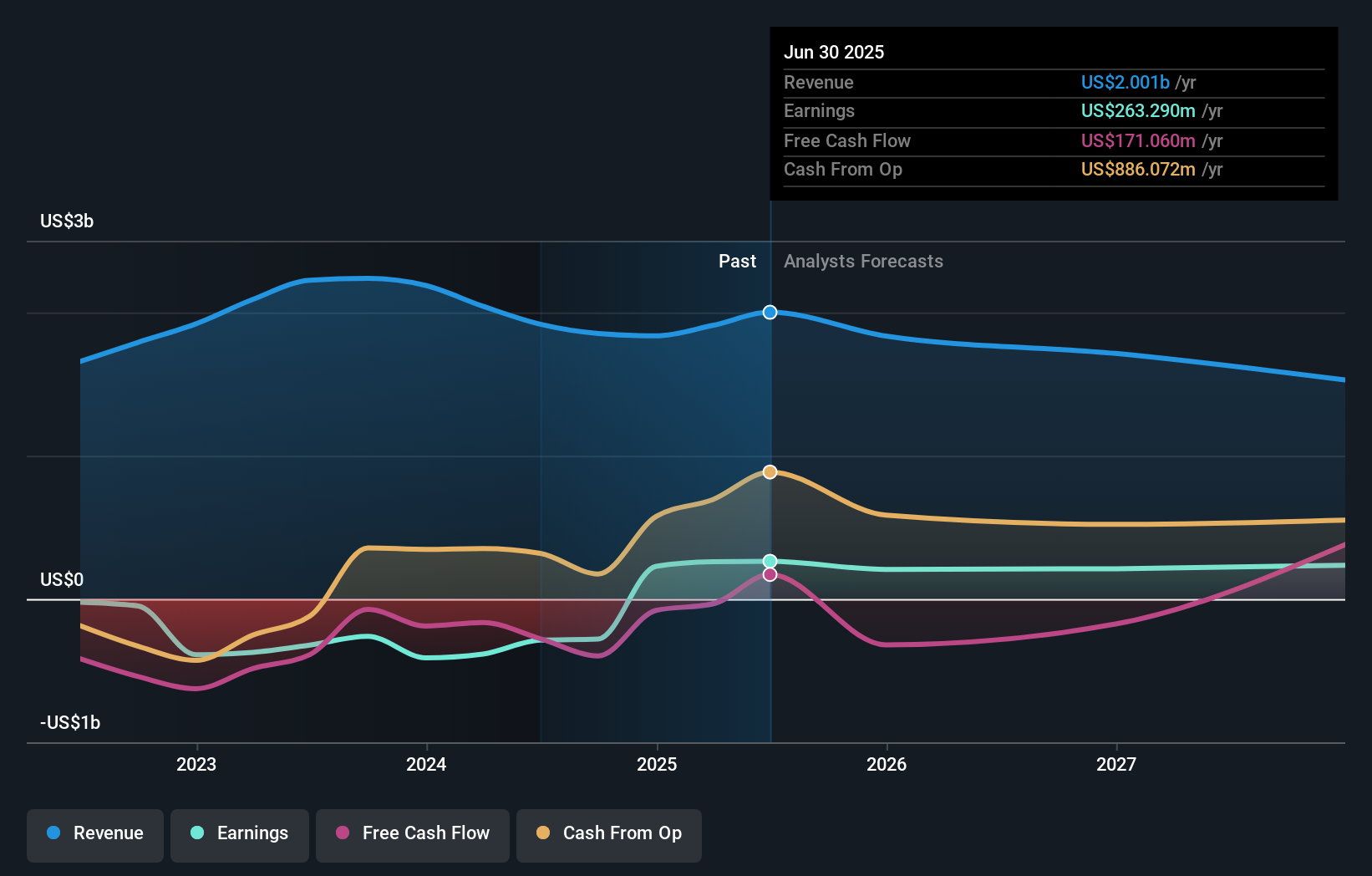- Chile
- /
- Electric Utilities
- /
- SNSE:ECL
Public companies are Engie Energia Chile S.A.'s (SNSE:ECL) biggest owners and were rewarded after market cap rose by CL$62b last week
Key Insights
- Engie Energia Chile's significant public companies ownership suggests that the key decisions are influenced by shareholders from the larger public
- Engie SA owns 60% of the company
- Institutions own 18% of Engie Energia Chile
Every investor in Engie Energia Chile S.A. (SNSE:ECL) should be aware of the most powerful shareholder groups. The group holding the most number of shares in the company, around 60% to be precise, is public companies. Put another way, the group faces the maximum upside potential (or downside risk).
Clearly, public companies benefitted the most after the company's market cap rose by CL$62b last week.
In the chart below, we zoom in on the different ownership groups of Engie Energia Chile.
View our latest analysis for Engie Energia Chile

What Does The Institutional Ownership Tell Us About Engie Energia Chile?
Institutional investors commonly compare their own returns to the returns of a commonly followed index. So they generally do consider buying larger companies that are included in the relevant benchmark index.
We can see that Engie Energia Chile does have institutional investors; and they hold a good portion of the company's stock. This can indicate that the company has a certain degree of credibility in the investment community. However, it is best to be wary of relying on the supposed validation that comes with institutional investors. They too, get it wrong sometimes. When multiple institutions own a stock, there's always a risk that they are in a 'crowded trade'. When such a trade goes wrong, multiple parties may compete to sell stock fast. This risk is higher in a company without a history of growth. You can see Engie Energia Chile's historic earnings and revenue below, but keep in mind there's always more to the story.

Engie Energia Chile is not owned by hedge funds. Looking at our data, we can see that the largest shareholder is Engie SA with 60% of shares outstanding. This implies that they have majority interest control of the future of the company. Administradora de Fondos de Pensiones Habitat S.A. is the second largest shareholder owning 3.9% of common stock, and Banchile Administradora General de Fondos SA holds about 1.8% of the company stock.
While it makes sense to study institutional ownership data for a company, it also makes sense to study analyst sentiments to know which way the wind is blowing. There are a reasonable number of analysts covering the stock, so it might be useful to find out their aggregate view on the future.
Insider Ownership Of Engie Energia Chile
The definition of company insiders can be subjective and does vary between jurisdictions. Our data reflects individual insiders, capturing board members at the very least. The company management answer to the board and the latter should represent the interests of shareholders. Notably, sometimes top-level managers are on the board themselves.
Insider ownership is positive when it signals leadership are thinking like the true owners of the company. However, high insider ownership can also give immense power to a small group within the company. This can be negative in some circumstances.
Our data cannot confirm that board members are holding shares personally. Not all jurisdictions have the same rules around disclosing insider ownership, and it is possible we have missed something, here. So you can click here learn more about the CEO.
General Public Ownership
The general public, who are usually individual investors, hold a 22% stake in Engie Energia Chile. This size of ownership, while considerable, may not be enough to change company policy if the decision is not in sync with other large shareholders.
Public Company Ownership
Public companies currently own 60% of Engie Energia Chile stock. It's hard to say for sure but this suggests they have entwined business interests. This might be a strategic stake, so it's worth watching this space for changes in ownership.
Next Steps:
It's always worth thinking about the different groups who own shares in a company. But to understand Engie Energia Chile better, we need to consider many other factors. To that end, you should learn about the 3 warning signs we've spotted with Engie Energia Chile (including 1 which is a bit concerning) .
But ultimately it is the future, not the past, that will determine how well the owners of this business will do. Therefore we think it advisable to take a look at this free report showing whether analysts are predicting a brighter future.
NB: Figures in this article are calculated using data from the last twelve months, which refer to the 12-month period ending on the last date of the month the financial statement is dated. This may not be consistent with full year annual report figures.
Valuation is complex, but we're here to simplify it.
Discover if Engie Energia Chile might be undervalued or overvalued with our detailed analysis, featuring fair value estimates, potential risks, dividends, insider trades, and its financial condition.
Access Free AnalysisHave feedback on this article? Concerned about the content? Get in touch with us directly. Alternatively, email editorial-team (at) simplywallst.com.
This article by Simply Wall St is general in nature. We provide commentary based on historical data and analyst forecasts only using an unbiased methodology and our articles are not intended to be financial advice. It does not constitute a recommendation to buy or sell any stock, and does not take account of your objectives, or your financial situation. We aim to bring you long-term focused analysis driven by fundamental data. Note that our analysis may not factor in the latest price-sensitive company announcements or qualitative material. Simply Wall St has no position in any stocks mentioned.
About SNSE:ECL
Engie Energia Chile
Engages in the generation, transmission, and supply of electricity primarily in Chile.
Undervalued average dividend payer.
Similar Companies
Market Insights
Community Narratives




